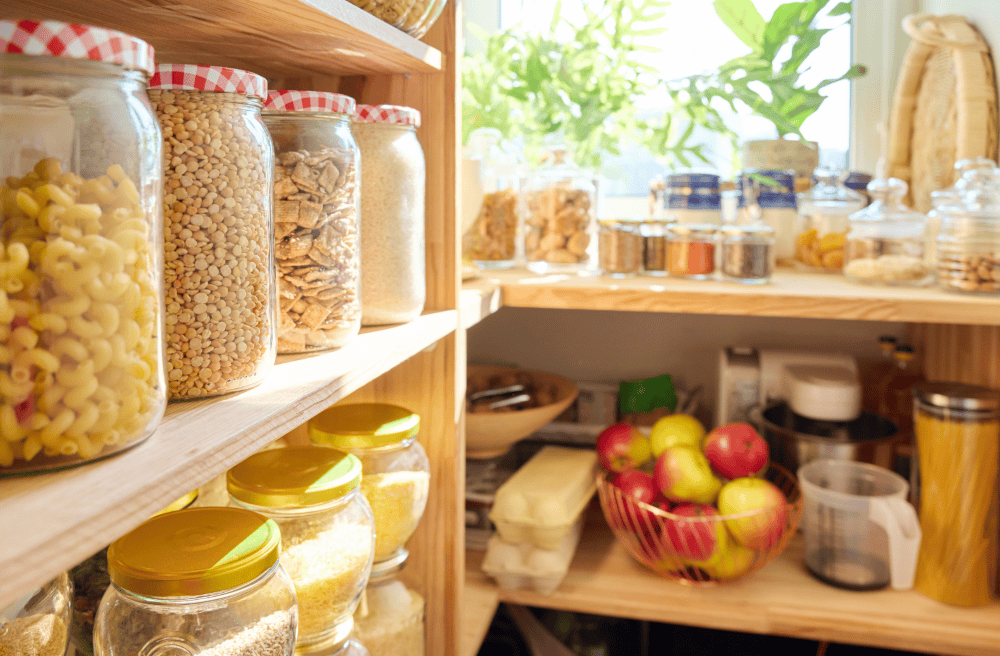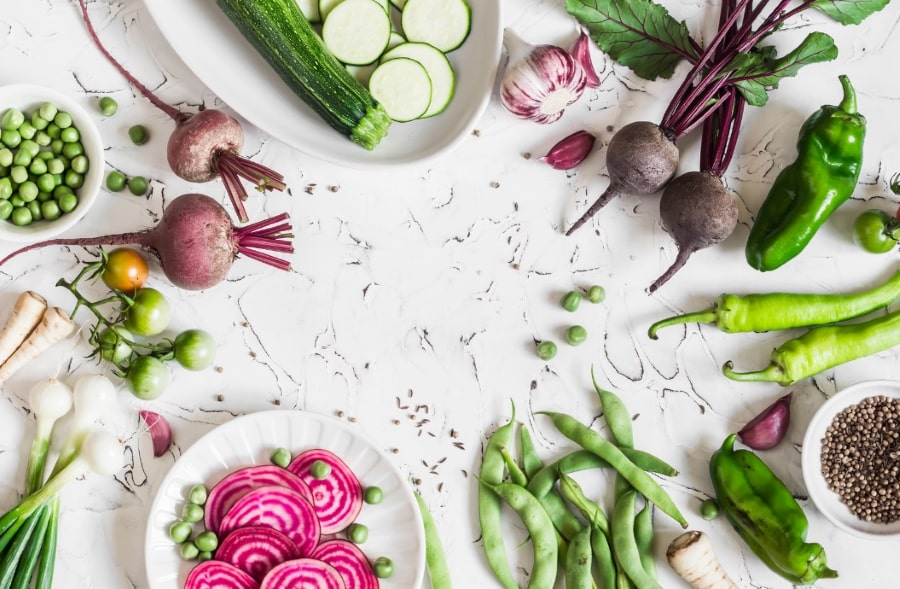

Join our usefulletter and get 10% off your first order + exclusive recipes, offers and BTS
Taking Care of Your Immune System
We wrote this blog post because we wanted to share our knowledge about enjoying delicious plant-based foods, and the science of nutrition to support your health.
In this age of information at our fingertips, it can be difficult to know what to eat to best support your health. There is so much conflicting information out there! That is why in this article we want to keep things simple. We believe in real food that is accessible and affordable for all budgets, and recipes so easy and delicious that you will want to make them again and again.
Tips for Everyday Use
We believe that when prepared properly and paired with complimentary flavours from herbs and spices, vegetables and fruits can be the superstars of delicious meals. Eating a variety of plant-based foods is proven to be one of the most powerful ways to support your health and well-being.
I have always had a passion for food and cooking. Once my favourite childhood hobby, cookery became my vocation and as my career progressed, I developed my niche in plant-based cuisine. Cooking with the vibrant colour and flavour palette of vegetables, herbs and spices was so interesting and challenging to me, and it also sparked my interest in the field of nutrition, leading me to pursue a Bachelor’s degree in Health Science for nutrition and dietetics. Since graduating as a clinical nutritionist, I have wanted to use my knowledge to help others and have enjoyed running many cooking classes and workshops. Co-writing this article with Chris felt like a great way to share more widely and I hope that you enjoy the tips and recipes we have put together for you.
Kathleen Stokes, Clinical Nutritionist

The Vital Importance of Your Immune System
Our immune systems involve various organs and cells in the body that are responsible for fighting and removing harmful germs that can make us sick, such as viruses, bacteria, fungi, mould and parasites. A healthy immune system keeps these invaders at bay, while also allowing us to heal quickly from cuts and injuries, and attacking unhealthy cells in the body.
When the immune system is not working as it should or is overwhelmed by issues such as chronic inflammation or disease, our defences are weakened, and we are more likely to succumb to invading germs and illnesses.

Some signs that your immune system is weakened can include the following:
- Frequent colds and infections
- Feeling run down and not coping with stress
- Cuts and wounds are taking longer than normal to heal
- Digestive issues such as bloating or diarrhoea
The Importance of a Healthy Diet for a Strong Immune System
We believe that although food and medicine are two different things, the foods we consistently choose to consume do have an impact on our health. Research shows that certain foods contain higher levels of nutrients that support our bodies to heal and stay healthy.
By combining some of the most powerful immune-supporting foods into our daily meals, we are creating a synergistic effect that, along with healthy lifestyle choices, can contribute to a strong immune system. A healthy immune system promotes increased vitality and greater resilience to opportunistic infections, disease, fatigue and stress.

What Foods Support a Healthy Immune System?
Specific nutrients that are essential for the immune system to function properly include zinc, vitamin D, vitamin C, iron, protein and selenium. Eating a wide variety of whole foods including plenty of local and seasonal fresh fruits and vegetables, legumes, nuts, seeds and whole grains gives us a good dose of essential nutrients to support a healthy immune system.
If you are eating a purely plant-based diet it is important to monitor your levels regularly with your doctor or nutritionist to ensure adequate intake of all nutrients. This type of diet is rich in prebiotics which are the fibres that feed healthy gut bacteria, promoting a healthy balance in your intestines, which contributes greatly to a strong immune system.
The addition of herbs and spices including turmeric, ginger, cinnamon and garlic gives extra antibacterial and antiviral protection, as well as delicious flavour. Foods that can disrupt the balance of gut bacteria include highly processed foods and those high in refined sugar, as well as red meat.
To make it easy to include all of these good foods into your daily diet, we recommend building up a store cupboard of pantry staples including the following:
- Legumes: lentils, chickpeas and various types of beans. If you love cooking from scratch you can buy these dried and soak and cook them yourself, freezing the leftovers for another meal. Alternatively, nothing beats the convenience of canned legumes that can simply be drained and rinsed and added to soups, stews and salads or made into patties or dips.

- Wholegrains: There is such a great variety of wholegrains on the market now! We like to keep brown rice and quinoa on hand as everyday staples, and we are big fans of the new wholegrain pasta such as buckwheat or quinoa.

- Nuts and Seeds: Nutritional powerhouses that can be used to add creaminess when soaked and blended, or crunch when toasted. There are so many to choose from! Sesame seeds, sunflower seeds, pumpkin seeds, hemp seeds, walnuts, cashews hazelnuts and almonds are just a few of our favourites. Once you find your favourites, store them in the fridge to keep them fresh for longer.
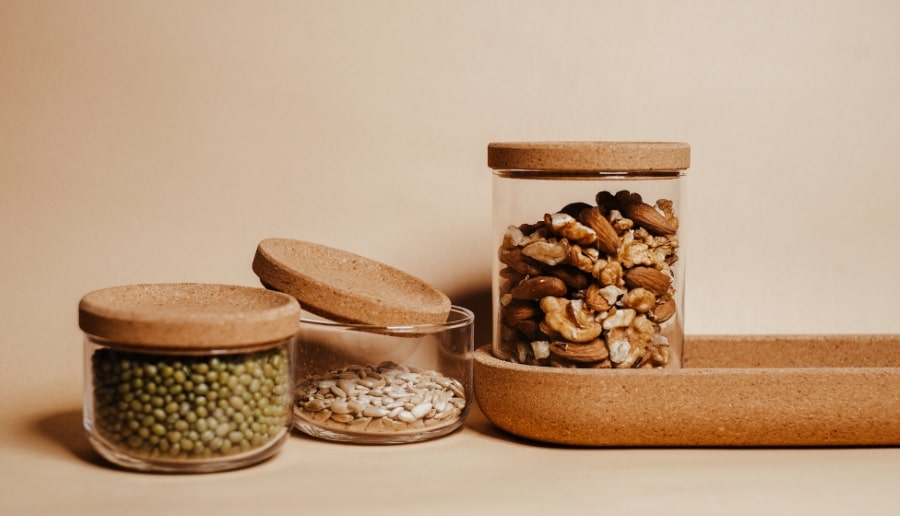
- Seasonings: The wider your spice selection, the more complex flavours you can play with! We would recommend starting with a few basics such as cumin, coriander, paprika, turmeric, ginger, pepper, cinnamon and curry powder and growing your collection from there. Dried herbs are also very useful to have around. A shake of Italian mixed herbs can turn a bland meal into a very flavourful one!
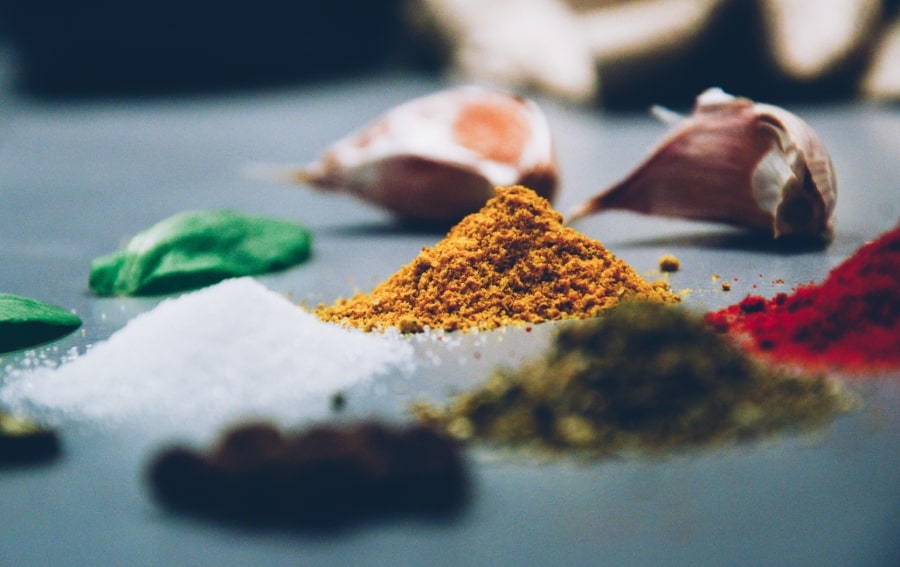
Lifestyle Tips for a Strong Immune System
In addition to eating a nourishing, wholefood, plant-rich diet, the following lifestyle tips can promote a strong and healthy immune system:
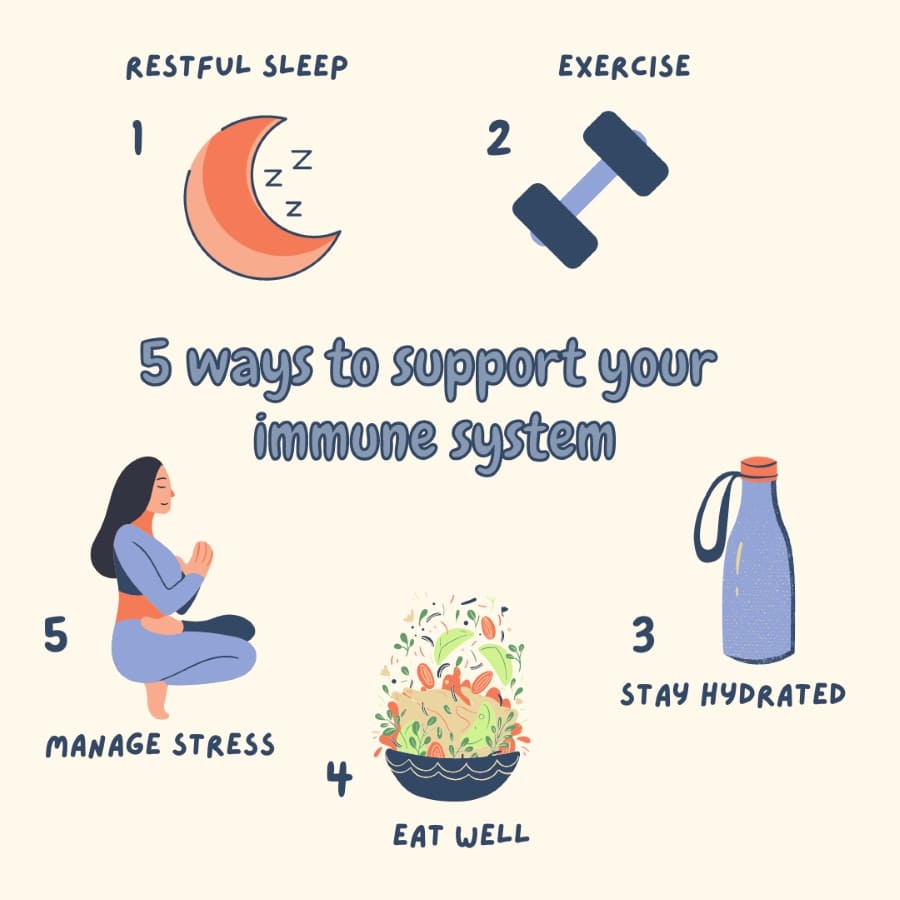
Move Your Body!
Pick some activities you enjoy and indulge in them often. It could be anything from a loungeroom dance party for one, to a sweaty gym session, relaxing yoga class or walking in nature with a pet or friend.
Be careful of exercising too intensely and frequently as this can weaken your immune system and lead to injuries. Moderate intensity is fine for most people. Please take it slow and see your doctor before embarking on a new exercise program if you are not used to being active or have underlying health conditions.
Lower Your Stress Levels
If it isn’t possible to remove or reduce exposure to the stressors in your life, it is important to come up with some techniques to manage and minimise the stress. Some proven ways to lower stress include:
- Scheduled relaxation and alone time
- Gentle exercise such as yoga, stretching or swimming
- Spending time outdoors in nature
- Discussing things with a supportive friend
- Focus on breathing long, slow and deep breaths to reset your nervous system when stress is present
- Meditation
- Preparing in advance if lack of organisation is contributing to your stress. For example, picking an outfit and packing your lunch the night before if mornings are usually a stressful rush for you.
Practice Good Hygiene
Wash your hands frequently, especially before and after handling food, touching pets, using the toilet, coughing, sneezing, or using a tissue.
Prioritise High-Quality Sleep
Getting good quality, uninterrupted sleep. 7-9 hours is optimal but it can vary from person to person. Although sleep quality can sometimes be affected by factors out of our control such as children, noise issues and shift work, the following small changes can add up to meaningful results:
- Try to go to bed and wake up at roughly the same time each day.
- Ensure that your bedroom is as dark and quiet as possible. Use a sleep mask or noise-cancelling headphones if they help.
- Stop using all electronic devices and screens at least 1 hour before bedtime.
- Stay well hydrated during the day but taper off your tea and water consumption in the evening if you find yourself having to get up often in the night to use the toilet.
- Avoid caffeine after lunch. This includes coffee, tea, dark chocolate, cola and energy drinks.
- Try reading a light fiction book or listening to a meditation app or sleep music to wind down before bed.
- Keep a journal by your bed and write down any thoughts that are keeping your mind active at bedtime. Permit yourself to deal with them tomorrow.
- Make sure your room is not too warm or cold. A slightly cool room is the best for optimal sleep.
- Minimise exposure to toxins.
- Choose natural cleaning products and cosmetics whenever possible.
- Avoid heavily processed foods, excessive alcohol and first or second-hand cigarette smoke.

Support Your Immune System With the Right Foods
We hope you found our article on the importance of healthy foods for a strong immune system helpful. In addition to consuming a plant-rich, balanced diet, getting enough exercise and sleep and managing your stress levels can help support a healthy immune system.
Food and health are our passion, and we are excited to share our love of nutrient-dense foods, plant-based catering, and healthy recipes with you. Contact us today to learn more about our range of mouthwatering plant-based treats, including vegan cakes, cookies, and desserts — you name it! We’d love to hear from you.
